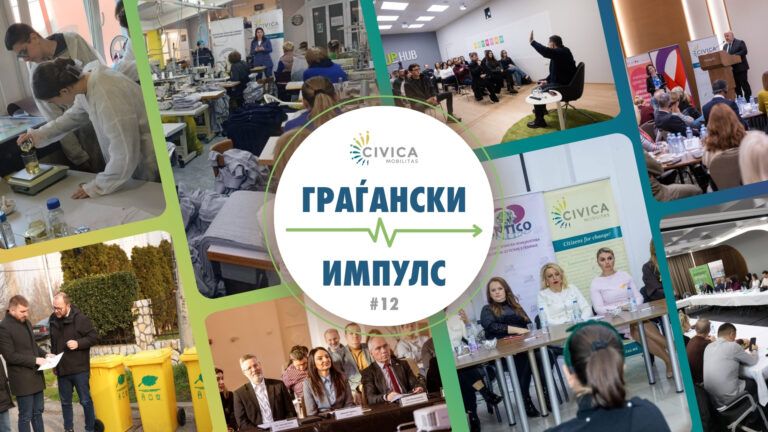State Funding of CSOs Is an Investment
“There has been no progress in the comprehensive reform of the framework for state funding of CSOs.” This is the old-new conclusion of the 2023 Enabling Environment Report published last month. Of course, this is not the only element of enabling environment, but it is certainly one of those most often debated by the institutions and CSOs, unfortunately, as the Report states, without any advancements.
Is this kind of stagnation, when state funding is at issue, a reflection of the institutions’ lack of trust in CSOs? If so, then why did the Government Strategy for Cooperation with and Development of Civil Society (2022-2024), in which one of the recommendations is “to increase the share of state funding from the central budget and the budgets of local governance units, so as to reach a share of 30% (about 2 billion Denars) in the total revenues of CSOs by 2024,” “pass”?
A few years ago, at one of the conferences organized by MCIC with representatives of the Government, the former Minister of Public Administration and Deputy Prime Minister of the Republic of Slovenia (2014-2018), Boris Koprivnikar, while sharing the Slovenian state funding model, answered one of the most common and probably most difficult questions: why should CSOs be funded from the state budget? “These organizations increase social contribution, support public services and act as correctors of political decisions. This means that funding is not perceived as donation, but as payment for the good services that the CSOs perform,” Koprivnikar said.
It was probably owing to this attitude that the colleagues from the civil society sector in Slovenia received Euro 539.3 million worth public funds in 2022. Of these, Euro 513.22 million were received from direct and indirect budget beneficiaries (ministries, municipalities, the Financial Administration of the Republic of Slovenia, public sector agencies and institutes). In 2022, 53.86% of all active NGOs in Slovenia received public funds (that year, Slovenia had over 27,000 CSOs). The total revenues of CSOs in that year exceeded one billion Euros, which means that state funding was somewhat above 51%.
In contrast, in 2023, CSOs in North Macedonia could count on around Euro 10.3 million from the central and the municipal budgets. The total revenues of CSOs in 2023 were Euro 147.6 million, which meant that the share of state funding was 6.7%.
It would be quite valid to note that Slovenia is a richer country and can, therefore, afford to allocate more funds to CSOs, but let us objectify this comparison as well: state support to CSOs in Slovenia in 2022 amounted to 3.5% of the country’s budget, whereas, in North Macedonia, in 2023, that support was nearly 0.2% of the budget.
Finances aside, the activities of CSOs in the country are aimed at improving citizens’ lives, be it through informal education, awareness raising, supporting vulnerable groups or strengthening democracy, etc. In that sense, institutions and CSOs strive for the same goal. How much longer will it take to understand that financing the civil society sector is an investment and not a mere waste of money?







![Sre]ni praznici(2)](https://civicamobilitas.mk/wp-content/uploads/2025/12/sreni-praznici2-768x432.jpg)
